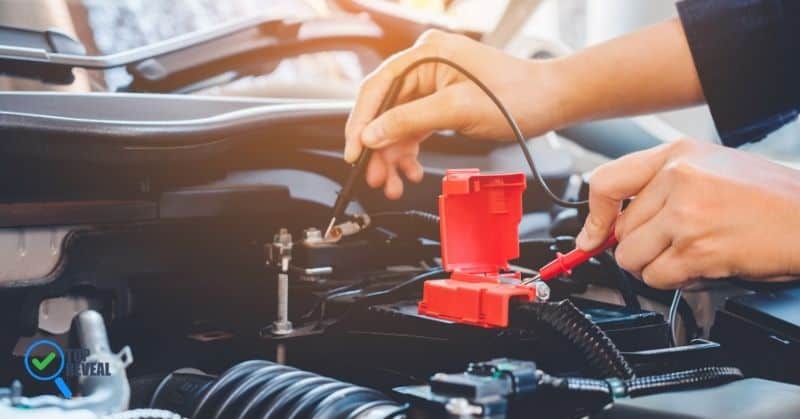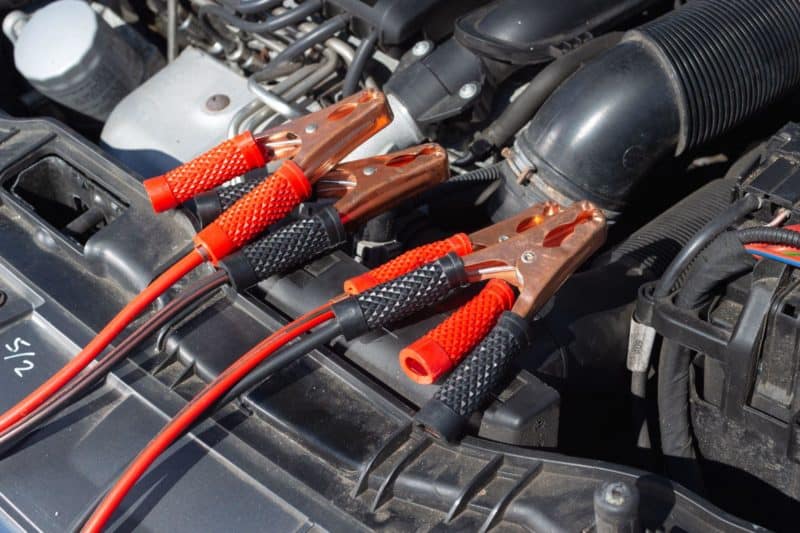The battery of your vehicle is practically its lifeblood. A battery not only starts your engine but also powers all the electrical components of your vehicle. You’ll be driving without anything playing on the radio if the car battery isn’t fully charged.

Most drivers are aware that the car should be changed every 3,000 to 5,000 miles. But, for some reason, most people are unaware of when to change their car battery, even though it’s the lifeblood of their vehicle.
Have you ever been in a hurry to get to work or school only to discover that your car won’t start? While jump-starting your automobile may get you to work, it is advisable to replace your battery before any problems arise. Therefore, knowing the condition of your car battery is important. Here are several warning signs when to replace your automobile battery.
Your Car Has Been Sitting For Too Long
Contents
If you leave your car outside for an extended period without using it, you may have a dead battery. Your driving habits have a significant impact on your battery. While you might think that driving regularly is bad for your battery’s health, the contrary is often true. Because your battery recharges while you drive, keeping your vehicle parked for an extended amount of time may drain its charge.
If you went out of town and have left your vehicle idle, consider asking someone to make sure it gets a quick spin around the block now and then to keep the car battery functioning.
When You Start The Engine, You Hear A Click
If all you hear when you turn the key in the ignition is a click, it is usually an indication that the battery does not have enough power to engage the solenoid and the starter, to start the engine. This problem can be caused by several factors, including an alternator that does not provide a full charge, a starting that requires too much power, or a defective solenoid or relay. Pay a visit to a competent car service shop for testing to determine what the issue is and whether any of the aforementioned items need to be replaced. And the Mechanic base is there to help you in such circumstances.
Your Engine Cranks When Starting It
If you’ve been driving for a long time, you probably have heard of the renowned engine cranking sound at some point, but it didn’t result In most cases, the issue is within the battery in such a situation.
This is when jumper wires and the driver of another car with a working battery who is willing to “share” their electricity with you come into play. Remove the jumper cables after starting your car, and don’t forget to drive it for at least half an hour to allow the alternator to replenish the battery. Afterwards, turn off the engine for a minute and restart it again to ensure that the automobile does not die again.
Your Battery Struggles to Overcome Seasonal Obstacles

As the North Carolina heat rises, you may find your battery reacting negatively to these changes, and the water in your battery’s internal fluids starts to evaporate. This can also result due to internal battery deterioration.
Your battery’s chemical process slows down in the winter, reducing battery life, and the car takes more power to start because of the slow-moving engine oil. Newer batteries can easily handle harsh weather conditions, but a battery nearing the end of its lifespan would suffer in extreme conditions.
Electrical Issues and Dim Lights
The battery powers all components of your vehicle’s electronics, from the lights, the radio to the dashboard computer. If the battery is losing charge, it will be more difficult to run these devices at full power. The more you plug into your automobile while driving, such as a phone charger, the faster your battery will expire.
A Strong Odor and Connectors with Corroded Ends
Battery damage or an internal fault might cause the battery to emit gas. If you open the hood, and it smells like rotten eggs, a leaking battery could be to blame. Take it in to be checked out as soon as possible, and replace the battery if necessary.
Have you noticed a whitish, ashy residue on the metal components of your battery? You have a corrosion problem. Corroded terminals (the positive and negative metal contacts on the top of the battery) might cause voltage problems and difficulty starting your vehicle.
Your Battery Is Older and Triggers a Dashboard Light
Wouldn’t it be nice if your automobile gives you a heads-up when a battery replacement is needed? Fortunately, most automobiles do that. When your car detects a battery or starting problem, the dashboard battery light will flash. When all else fails, you may rely on your battery’s age to determine when the time to replace it. The average car battery will last three years, though this can vary depending on the battery’s brand, vehicle type, environment, auto care, and driving habits.
How much does it cost to replace a battery?
A new automobile battery costs between $60 and $180, and your dealer may charge an additional $30-$50 to replace it. It is not difficult to replace a car battery as a do-it-yourself project, but the battery is heavy (30-45 lb). It can be taxing on your back to lift it out of the car. An old battery is frequently covered with electrolyte, which is extremely corrosive and can burn your clothing or skin.
The Little Things Can Help Your Battery Life
Consider waking up with a dead automobile battery. It’s not an enjoyable feeling. But, because batteries can do things when we’re not looking, we need to help them last. When departing your vehicle, switch off all interior and external lights. It’s also a good idea to unhook any power adapters.